Table of Contents
Greg’s Recommended Free Speech Culture Study List

Modern First Amendment case law is unique in the entire world for its strength of speech protection, and in my opinion it remains the best thought-out meditation on how to have free speech in the real world. But it didn’t arise from nowhere — it grew over time as a result of a free speech culture. This reading list is meant to give you a good overview of how that culture evolved.
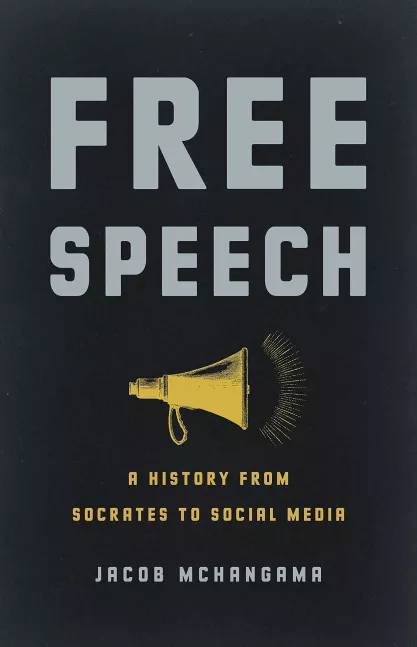
Ancient world until today, spans the globe: “Free Speech: A History from Socrates to Social Media,” Jacob Mchangama, @JMchangama (2022). This book is, in my experience, completely unique and truly international. Mchangama's book is a fantastic expansion of his work on "Clear and Present Danger," a FIRE-sponsored podcast. The book and podcast eloquently demonstrate that free speech has been a recurrent issue for human society all across the globe since the dawn of civilization. Without contributions like this, it’s easy to come away with the impression that free speech is primarily just a concern in, say, the Netherlands, the U.K., and the U.S. … And with that caveat, let’s get back to the list, which is overwhelmingly about the state of free speech in just the U.S.! Winner of my book of the month award for January 2022.
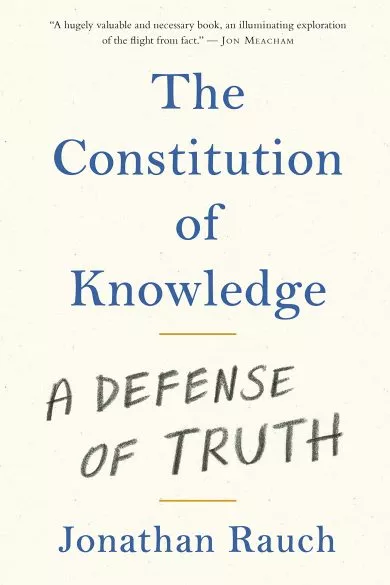
Free Speech in the modern day: “The Constitution of Knowledge: A Defense of Truth,” Jonathan Rauch @jon_rauch (2021). In what I believe was the most important book of 2021, Jon creates an absolutely worthy follow-up to Kindly Inquisitors (which appears later on this list), which focuses on the modern crises facing our knowledge producing industries, particularly higher education and journalism, and makes a winning case that, despite appearances, despite our intuition, despite our confidence, the world around us is, and forever will be, deceptively difficult to understand. (My full review here.)
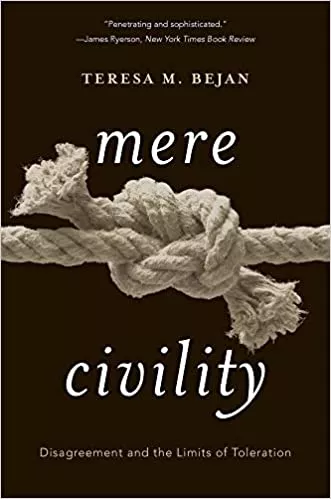
Britain and the U.S. colonies in the 17th century: "Mere Civility," Teresa M. Bejan, @tmbejan (2017). This underappreciated book not only did a wonderful job introducing the world, and me for that matter, to the ancient Greek concepts of isegoria and parrhesia, but also proposes an unlikely champion or model for American free speech: the founder of Rhode Island, the uncompromising and cantankerous Puritan, Roger Williams. It sounded unlikely to me, but Bejan makes a great argument that the U.S.’s more expansive notion of freedom of speech goes waaaay back.
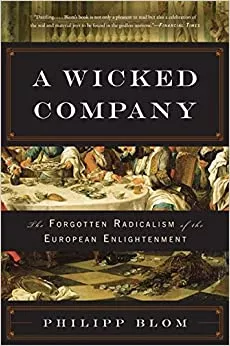
18th century France and Britain: "A Wicked Company: The Forgotten Radicalism of the European Enlightenment," Philipp Blom (2012). An absolutely wonderful read, and a lesson in how vibrant society can still be in a strong free-speech culture, even if the laws are outright hostile to freedom of speech, and you could even risk going to jail for making the wrong arguments.
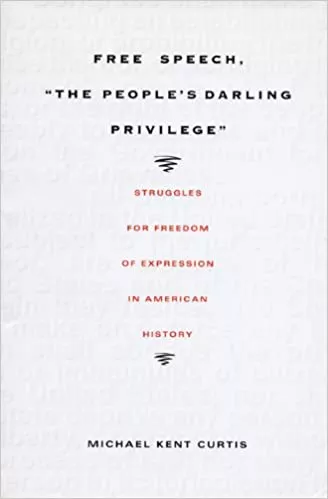
Early 19th century United States and the Civil War: "Free Speech, The People's Darling Privilege," Michael Kent Curtis (2000). I will never stop recommending this book, and hereby demand an audio version. In this book, Michael Kent Curtis expertly makes the argument that free speech in the United States did not die due to the fact that the First Amendment had very little legal meaning up until about 1925. He shows how a commonly held belief in freedom of speech protected and sustained free speech, at least in the non-slaveholding states, up until the Civil War.
- "On Liberty" (Chapters 2 & 3), John Stuart Mill (1859). The earliest document cited here is the most influential work on free speech in history. It is extremely important to remember, though, that John Stuart Mill was very clear that he was primarily arguing about the conformist state of Victorian English culture, and otherwise thought the law in England at the time was fairly protective of freedom of speech. If you'd like a beautiful and more easily-digestible version, check out Heterodox Academy's All Minus One, which is an illustrated collection of many of Mill's free speech arguments from On Liberty.
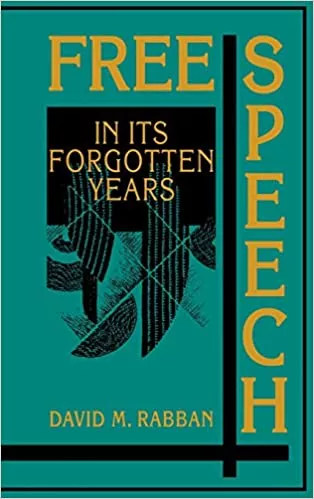
Late 19th century U.S. up until the 1920s: "Free Speech in Its Forgotten Years, 1870-1920," David M. Rabban (1997). The modern legal history of free speech begins in 1925, when the Supreme Court laid out its theory of incorporation, stating that the Fourteenth Amendment had made the First Amendment enforceable against the states. This book focuses on the period between the enactment of the Fourteenth Amendment and the Supreme Court’s decision to use it to give the First Amendment teeth.
- 1915 Declaration of Principles on Academic Freedom and Academic Tenure and the 1940 Statement of Principles on Academic Freedom and Tenure, American Association of University Professors @AAUP. There may be no place where free speech is more important than the university, and, considering that many colleges are private, that freedom is protected more by norms of academic freedom than it is by the First Amendment. Nowhere are those norms stated with greater clarity than in these two documents from the AAUP.
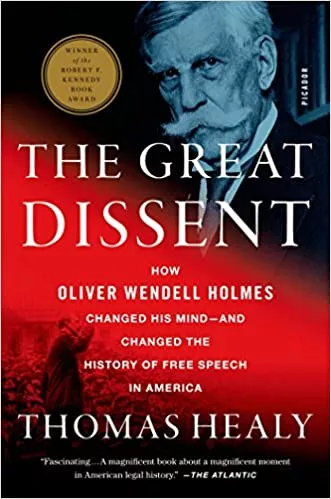
"The Great Dissent," Thomas Healy (2013). An exceptional book on how a cultural and growing intellectual belief in freedom of speech (championed by great thinkers like Learned Hand and the socialist intellectual politician Harold Laski) persuaded Justice Oliver Wendell Holmes to finally reinterpret the First Amendment to mean something in the real world, after well more than a century of legal toothlessness.
- West Virginia State Board of Education v. Barnette, 319 U.S. 624 (1943). In 1940, the Supreme Court ruled 8 to 1 that public schoolchildren — including those with religious objections to the practice — could be required to say the pledge of allegiance in schools. Three years later, the Court reversed itself in Barnette, 6 to 3. In doing so, the Court warned: “Those who begin coercive elimination of dissent soon find themselves exterminating dissenters. Compulsory unification of opinion achieves only the unanimity of the graveyard.” While this is a court decision, it doesn’t read like one, and it’s the best opinion to read if you want to understand liberty. Hear it read by the great Nadine Strossen here as part of our Free Speech Out Loud series.
- "The Spirit of Liberty," speech by Judge Learned Hand (1944). Learned Hand’s natural poetry does more to capture liberty than anyone else. “The Spirit of Liberty” is a quick read, but it’s an absolutely stirring call to action. “Liberty lies in the hearts of men and women; when it dies there, no constitution, no law, no court can even do much to help it. While it lies there it needs no constitution, no law, no court to save it.”
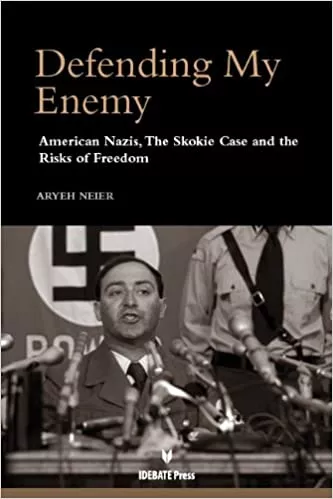
"Defending My Enemy," Aryeh Neier (1979). Aryeh Neier was a Jewish refugee of Nazi Germany who rose to become the executive director of the ACLU, a role he held during the seminal case National Socialist Party of America et al. v. Village of Skokie, 432 U.S. 43 (1977), in which Neier defended the rights of American Nazis to march in a Chicago suburb with a large Jewish population. For this act of courage and principle, Neier was condemned by people of all political stripes, and the ACLU lost 30,000 members. Defending My Enemy is his thorough and persuasive justification for the case. It still absolutely bears reading after Charlottesville, as it answers the questions that civil liberties advocates will continue to be asked into perpetuity: “Do we really need to defend the rights of Nazis?”

"Free Speech for Me—But Not for Thee," Nat Hentoff (1992). Everyone who knew Nat was crushed by his loss in 2017. A titan of free speech advocacy in addition to being a prolific jazz critic, this book is as good an introduction to him as any. In 1992, Nat was already making the argument that censorship is a universal reflex shared by the left and right, and that it takes work to overcome that reflex. That’s an argument you’ll be very familiar with if you’ve read much of my or FIRE’s work, and a lot of that is Nat’s influence.
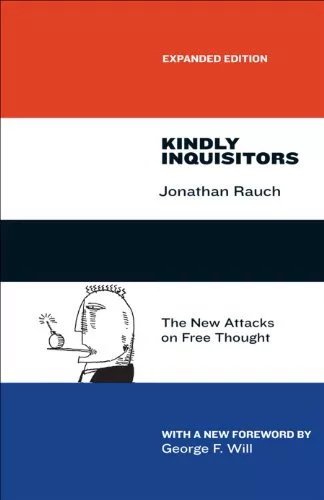
"Kindly Inquisitors," Jonathan Rauch @jon_rauch (1993). I tell people that Mill’s "On Liberty" is the best thing ever written about freedom of speech. I usually follow that up with “But ‘Kindly Inquisitors’ is the best thing written about free speech since Mill.” While the book contains immense wisdom on any number of topics, for cancel culture, pay special attention to his treatment of the fatwa against Salman Rushdie (notably a signatory of the infamous Harper’s Letter.) (My full review here and winner of the first Excessively Prestigious Award.)
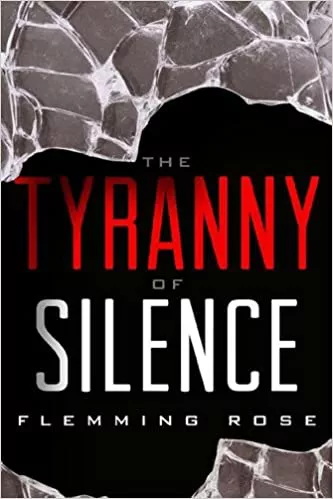
"The Tyranny of Silence," Flemming Rose (2014). Written by the editor who published the infamous Mohammed cartoons, and though that may turn some people off, Rose comes off as an incredibly thoughtful political liberal who simply believed there was nothing special about any religion that meant it couldn’t be poked fun at in accordance with the old Danish tradition. An underappreciated book that everyone must read, it includes some of the best and most thorough arguments I’ve seen that the Weimar Republic did, in fact, have something akin to hate speech codes; Nazis were jailed under them; and it was a huge PR success for the Nazis. This is an important argument as many of the leading advocates of censorship cite things like the rise of the Nazis as justification for modern speech codes — as if, had there been such codes in Germany, Hitler never would’ve come to power. Well, there were such codes.

"Dangerous Ideas: A Brief History of Censorship in the West, from the Ancients to Fake News," Eric Berkowitz, @ericberkowitz4 (2021). Berkowitz’s astounding book is a comprehensive, entertaining historical account of censorship in the West, from Ancient Greece to the present. It does an especially good job highlighting the class dynamics of censorship, including the Streisand Effect and censorship imposed by elites for the “benefit” of the poor. I have some reservations about the last chapter, which I feel gives too much credit to the arguments made by academic speech skeptics, but the book is still a triumph I will be reading again and again. (My full review here.)
EXTRA CREDIT. For those overachievers out there, if you want to get a much earlier perspective on free expression, check out John Milton’s "Areopagitica" (1644), and John Locke’s "Letter Concerning Toleration" (1689). I would have listed them earlier but the 17th century prose is not for everyone.
Recent Articles
Get the latest free speech news and analysis from FIRE.

Can the government ban controversial public holiday displays?

The trouble with banning Fizz

FIRE's 2025 impact in court, on campus, and in our culture
